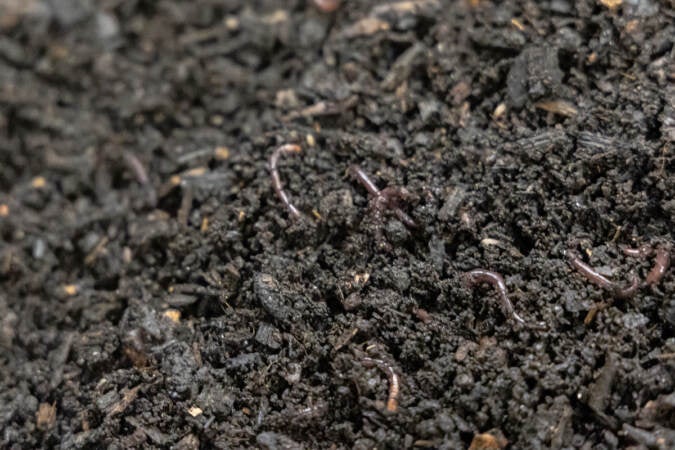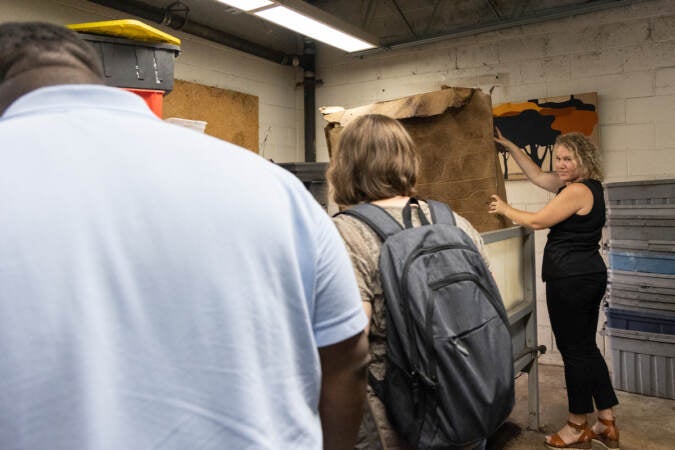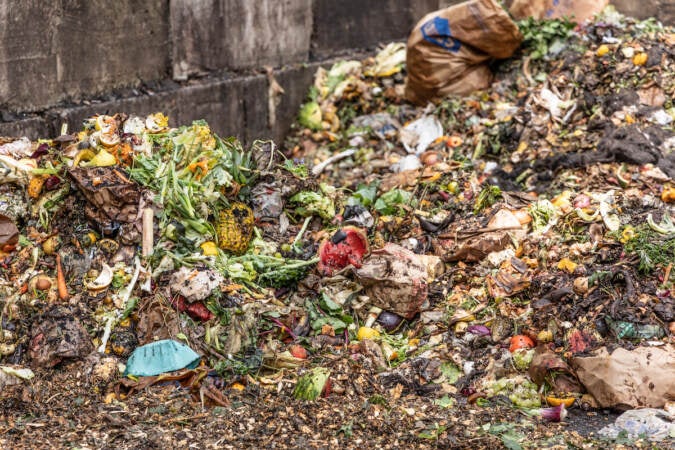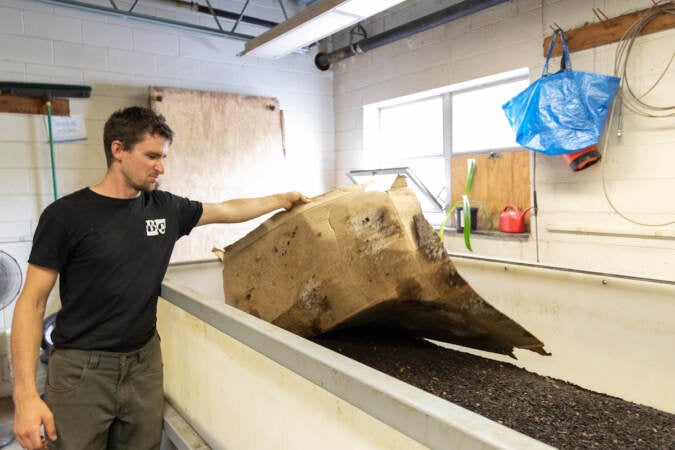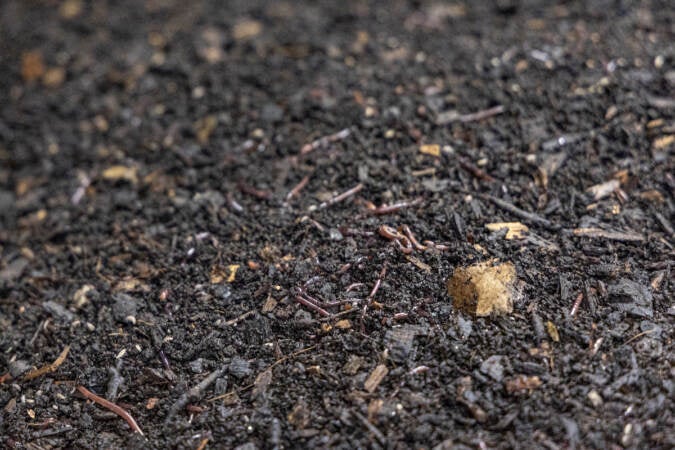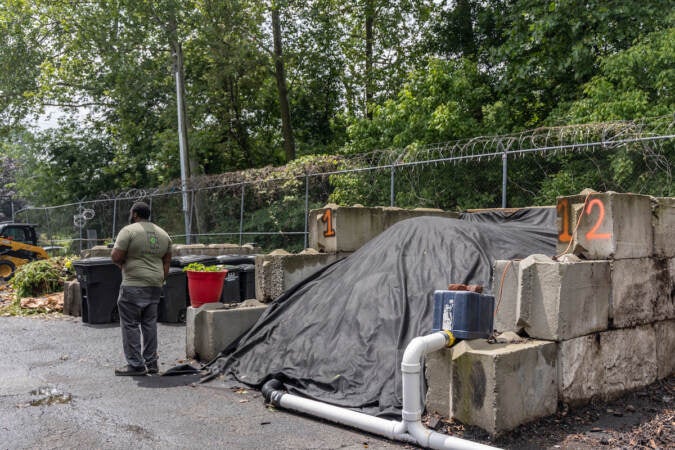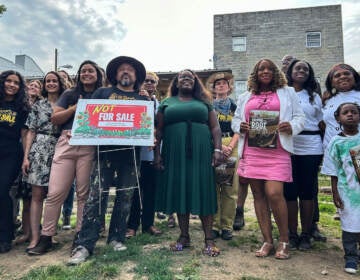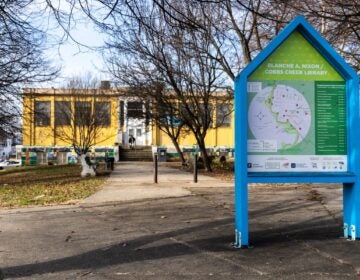This company turns food scraps into compost for Philly community gardens at an old city building
“Food waste from our rec centers becomes high-quality compost, adding valuable nutrients back into city soils,” one official said.
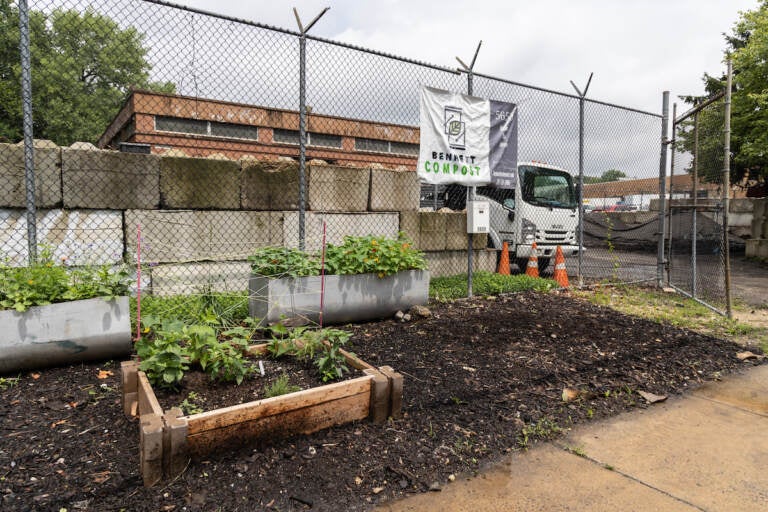
Philadelphia Parks and Recreation and Bennett Compost celebrated the new facility which will keep food waste from the city’s recreation center out of landfills on June 27, 2023. (Kimberly Paynter/WHYY)
Throw out an apple core at a Philadelphia recreation center, and it may not end up in a landfill. Instead, it could end up back on park land, nourishing a community garden as compost.
Officials held a ceremonial ribbon cutting Tuesday for the first facility to compost food waste from recreation centers on city park land.
“This facility used to be a Parks & Recreation operations and maintenance team building, and today it’s a composting hub for Philadelphia, where food waste from our rec centers becomes high-quality compost, adding valuable nutrients back into city soils,” said Natalie Walker, sustainability director for Parks and Recreation.
The composting center is a public-private partnership between the city’s Department of Parks & Recreation and Bennett Compost, a company that offers a paid curbside composting service in Philly. The project got support from the U.S. EPA, the state Department of Environmental Protection, and the USDA.
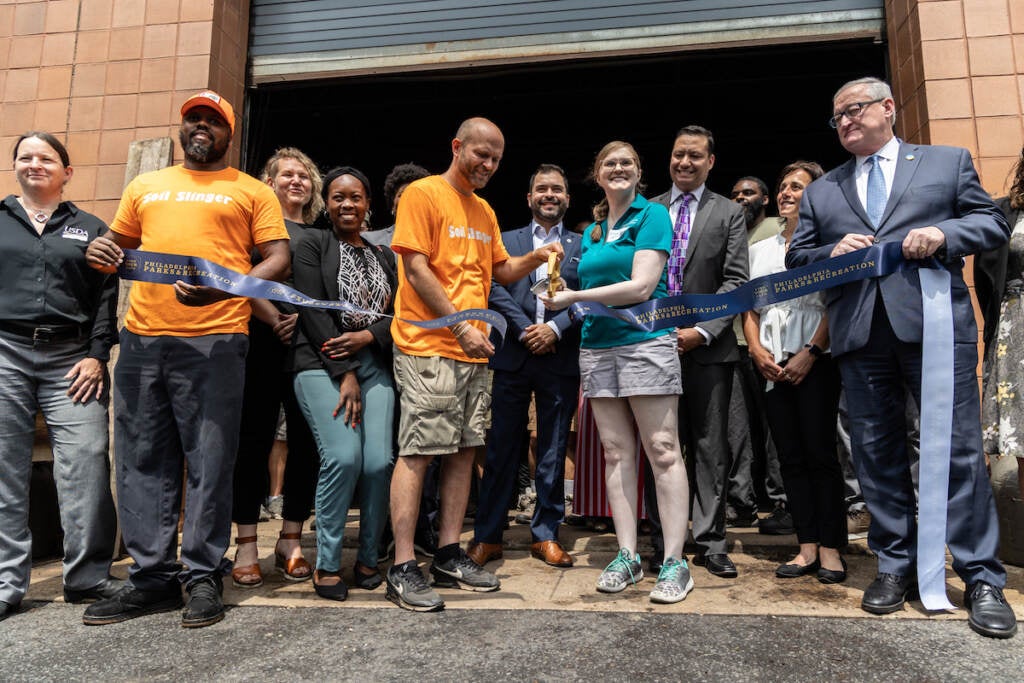
A long-term lease allows Bennett Compost to use a vacant Parks & Rec facility on Rising Sun Avenue in the Crescentville neighborhood for a commercial composting operation. In exchange, the company picks up compost from city rec centers for free, and provides Parks & Rec with 75 cubic yards of finished compost each spring.
“Parks and Recreation is able to divert more waste from landfills, reduce our carbon emissions, and help build a sustainable model for commercial composting right here in a densely populated urban environment,” Walker said.
Bennett Compost currently picks up food scraps weekly from 50 rec centers, but plans to expand the program within five years to all rec centers that serve meals, Walker said.
So far, the facility has prevented 5,000 tons of food scraps from going to landfills, said Jennifer Mastalerz, co-owner of Bennett Compost.

This means benefits for environmental justice communities, where landfills and trash incinerators tend to be located, said Fernando Treviño, special deputy secretary for environmental justice at the Pennsylvania Department of Environmental Protection.
“There’s no secret, right? Usually landfills, incinerators, a lot of those facilities are in [environmental justice] areas,” Treviño said.
The composting facility began processing food waste in November of last year, said co-owner of Bennett Compost Tim Bennett. Finished compost will be delivered to community gardens on city park land starting this summer, augmenting the compost provided from the city’s organic recycling center.
“It’s a big deal,” said Ash Richards, director of urban agriculture at Parks & Recreation. “It’s going to allow us to add additional deliveries to our gardens, but then also any of our leased projects. Potentially in the future we would love to open it up to the public as well — so that the public can also receive delivered compost for free.”
City and state officials hope the operation could be a model that’s replicated elsewhere, whether by entrepreneurs in Philly or by other municipalities.
“We were hoping … in the future a lot of Black and brown entrepreneurs who want to do composting, that this hopefully will open up a door for those folks to vision what they would like to see … and know that a public private partnership is possible that would support the growth of their business,” Richards said.
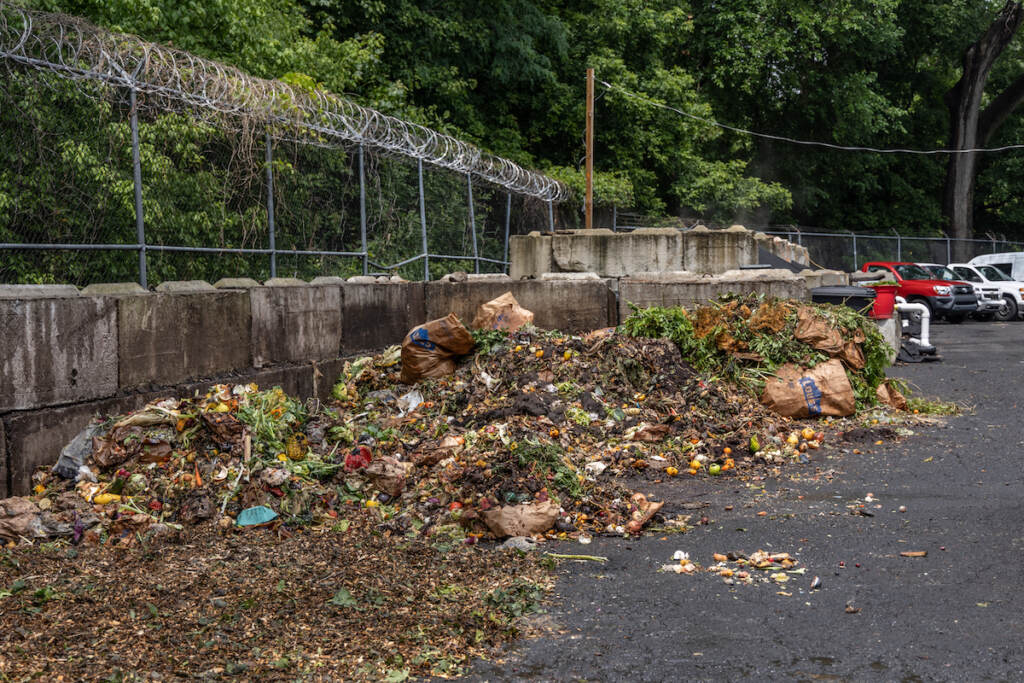
In neighboring Delaware County, officials hope a federal grant could facilitate a similar operation, said Rebecca Yurkovich, the county’s sustainability and resilience manager. The county would pilot different methods of collecting residential food waste to compost, with the goal of diverting it from a trash incinerator in Chester, which emits unhealthy air pollution in the majority-Black city.
“This is a very inspiring project,” Yurkovich said. “We know and recognize that a lot of waste going into the incinerator in Chester is not exclusively Delaware County’s, so we’re always happy to see other surrounding communities … trying to get things out of the waste stream.”

Subscribe to PlanPhilly
WHYY is your source for fact-based, in-depth journalism and information. As a nonprofit organization, we rely on financial support from readers like you. Please give today.




